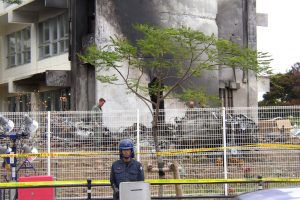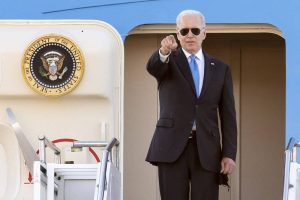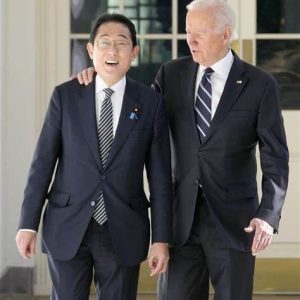August 13, 2004, broad daylight, when I was covering a US military base in Okinawa. A U.S. military helicopter that attempted to land at U.S. Futenma Air Station in Ginowan City crashed into the adjacent Okinawa International University campus. Despite being outside the grounds of the airport, the US military eliminated not only the Okinawa Prefectural Police and the Ginowan City Fire Department, but also the university officials and the Ginowan City authorities. U.S. Marine Corps personnel were among the first to arrive at the  scene, working to put out the crashed helicopter and shut down the entire area around the campus (photograph). No university personnel were injured, but the 20 or so employees who were in Building No. 1 of the university, which the crashed helicopter came into contact with, were forced out of the restricted rope without being protected. I still vividly remember the voices of the local TV station reporters reporting the unreasonable handling of the US military with trembling voices.
scene, working to put out the crashed helicopter and shut down the entire area around the campus (photograph). No university personnel were injured, but the 20 or so employees who were in Building No. 1 of the university, which the crashed helicopter came into contact with, were forced out of the restricted rope without being protected. I still vividly remember the voices of the local TV station reporters reporting the unreasonable handling of the US military with trembling voices.
Why did the US military blockade the site, and Japanese police, fire departments, and local governments did not enter the site at all until the accident aircraft was carried out and the site inspection was completed? The helicopter caused an accident outside the US military base, but why did the US military disperse the Japanese police and fire departments? The answer was in the Japan-US Status of Forces Agreement, which “exceeds the Constitution of Japan.” According to the "Status of Forces Agreement Agreement Minutes", if the US military blocks the accident site, the Japanese government will not be able to investigate. Japan does not have the right to search US military property, whether on or off US military bases. This accident was a shocking event that brought to light the fact that all of Japan is under the extraterritoriality of the U.S. military.
Despite this, the Japanese government has made a sophistry about the status of US forces stationed in Japan, saying, "There is no extraterritorial status. That status is granted by the Japan-US Status of Forces Agreement." This is because the premise is that the operation of the Japan-US Status of Forces Agreement is being negotiated by the Japan-US Joint Committee, which is composed of representatives from both Japan and the US. However, the U.S. participants in this joint committee were not civilians, and all but one U.S. diplomat in Japan were military personnel. What's more, the committee is not just a forum for discussion, but a forum for the US forces stationed in Japan to give direct instructions to senior officials of Japan's central ministries and agencies.
■ Status of Forces Agreement to Continue Military Occupation
According to the 1972 Foreign Relations of the United States (FRUS), Japan is placed under de facto military administration, ignoring civilian control. to maintain the extraordinary direct relationship between the U.S. military and Japanese bureaucracy, which was established in the early days of the occupation, even after the occupation. Toshihiro Yoshida, a leading researcher of the Japan-U.S. Joint Committee, said, "The Japan-U.S. Joint Committee is a remote control device for the U.S. military to maintain the privileges of the occupation period (1945-1952) in post-war Japan." aptly and sharply expressed.
The reason for this bizarre bilateral relationship is that in the early 1950s, just before the end of the occupation, the US military was categorically opposed to the independence of Japan. Needless to say, it is due to the decisive deepening of the Cold War with the Soviet Union and China, symbolized by the outbreak of the Korean War. At that time, John F. Dulles, who would become the secretary of state of the Eisenhower administration, visited Japan as a special adviser to President Truman for preliminary negotiations on the conclusion of a peace treaty. It was under strong pressure from the military, headed by the Pentagon and the War Department, to conclude a peace treaty with Japan that would not change its status.”
In fact, at the same time as the signing of the San Francisco Peace Treaty in 1951, a unilateral Japan-U.S. Security Treaty, not a mutual defense treaty, was concluded. The following year, the Japan-U.S. Administrative Agreement, which was succeeded by the 1960 Japan-U.S. Status of Forces Agreement, was concluded. Just as the provisions of Chapter 6 of Japan's Civil Aviation Law, which stipulate minimum altitudes and no-fly zones, do not apply to U.S. military aircraft, the Japanese Constitution, which is based on the protection of the human rights of Japanese people, is invalid with respect to the U.S. military. .
The power of the US military during the occupation is absolute. They were able to act ignoring the domestic laws of Japan, and with the help of the U.S. military, they could make military bases anywhere in Japanese territory, conduct military exercises at any time, and even kill or injure Japanese. John Dulles' famous words, "We will establish bases as many times as we like, wherever we like, all over Japan," should be seen as directed not so much at the Japanese government as at the U.S. military. be.
■ The two sides of the Japan-US security system and the continuation of the emperor system
A striking fact must be noted here. In the early 1950s, Emperor Showa (Hirohito), who had been deprived of all political power and should have become a symbol of national unity, said in the early 1950s, "I want Japan to prevent communism by concluding the Japan-U.S. Security Treaty and continuing the stationing of the U.S. military." He appealed directly to Dulles and MacArthur. To that end, he is asking for the permanent occupation of Okinawa by US forces. The continuation of the military occupation of Japan is something that the emperor himself begged for, taking into consideration the intentions of the United States. This fact is detailed in Toyoshita Taruhiko's "Formation of the Security Treaty: Yoshida's Diplomacy and Emperor's Diplomacy" and "Emperor Showa's Post-War Japan <Constitution and Security System> Road to the Constitution" authored by Taruhiko Toyoshita, who verified this fact from primary sources of US official documents.
Toyoshita's empirical arguments continue to be completely ignored by general media such as Japanese newspapers and television. Even Wikipedia is hesitant, stating, ``The hypothesis is that Emperor Showa, who wanted to get closer to the United States, may have existed as 'emperor diplomacy,' and we are trying to prove it.'
At the end of September 1945, Emperor Hirohito had his first meeting with Allied Commander-in-Chief Douglas MacArthur, and was reported to have said, ``I don't care what happens to me. There is no need to completely deny this statement, but the most important thing for him was the continuation of the imperial lineage. It is easy to guess that he had a heartbreaking desire to end the imperial line, which was said to have lasted for more than 2,600 years and 124 generations since Jimmu.
The Russian Revolution of 1917 and the execution of Tsar Nicholas II and his family shocked the Japanese imperial family and court. The impact of communism phobia becoming a reality for Japan's power centers was immeasurable. With the defeat in the war against the United States, the imperial line was in danger of extinction.
All forms of political party politics and democracy, which have been corrupted by tying with the zaibatsu, have vanished due to the special power ruled by the enactment of the Security Preservation Law, the exclusion of civilians on the pretext of the supreme command being violated, and the arbitrariness of the military. It must be because the emperor and his aides, who have absolute prerogatives, wanted to eradicate "democracy". As I have already mentioned in another article, the view that ``the war between Japan and the United States was caused by the military's rampage,'' is a deception in order to exonerate the Emperor. The oligopolistic capital and zaibatsu of the Empire of Japan, with the emperor zaibatsu at the top, were greatly enriched by the quagmire of the Sino-Japanese War. The Japanese military-industrial complex that gave birth to Emperor Fascism was the engine of the war against the United States. I won't go into detail here, but in any case, the introduction of the Japanese military-industrial complex's means of governance, including the financial and monetary system, into China and the military confrontation with the United States, which prevented the military from invading China and demanded its complete withdrawal. It was inevitable. The U.S. side must have used every possible means to provoke Japan until it entered the war.
■ Fumio Kishida said, "I will not touch the SOFA."
Could the Japan-US Status of Forces Agreement be considered a compensation for imperial fascism? Regarding the Japan-U.S. Status of Forces Agreement, it is often said that "the 'Japan's tragedy' that cannot defy the 'US military'". If that is the case, the imperial system fascism can be explained as ``a tragedy of Japanese subjects who could not defy the ``modern imperial system''.
Philosopher Kiyoshi Miki was found dead in prison at the end of September 1945, more than a month after surrendering. The Yokusan media, which called for the completion of the holy war, was completely indifferent to the release of political prisoners. However, when most of the trend turned toward democracy, they turned around and repented of admiring militarism, praising and advocating democracy. Soho Tokutomi said insane words, ``Even if the mainland were destroyed in a decisive battle on the mainland, the imperial line can continue as long as three Japanese survive.'' The young fighter of the former Freedom and People's Rights Movement instigated imperial fascism, and in his later years became a crazy ultranationalist. Nevertheless, in August 1945, after receiving Gyokuon Broadcasting, the president of the Tokyo Mainichi Shimbun at the time visited Soho in Yamanashi and persuaded Soho, who had offered to resign as advisor to the company, to stay with him.
A US source recently revealed that current Prime Minister Fumio Kishida said that he would not touch the SOFA. It is unclear whether it was before or after he took office as prime minister.
People who are unaware of their right to resist will forever be slaves to those in power. Not just the public. Powerful people are also cheap and submit to stronger powers. The Japan-U.S. security arrangements highlight the distorted multiplicity of powers.

 [Photo] On the left is President Biden, who visited Japan in May 2022. Like his predecessor, he arrived at Yokota Air Base and was taken by helicopter to a US helicopter base in Tokyo. He boasted that the United States had de facto control over Japan. The photo below is from when Prime Minister Kishida visited the United States in January 2023 and visited the White House. With a doubling of defense spending, the ability to strike enemy bases, and three national security documents as souvenirs, he flirted with Biden and smiled broadly when he was "lauded."
[Photo] On the left is President Biden, who visited Japan in May 2022. Like his predecessor, he arrived at Yokota Air Base and was taken by helicopter to a US helicopter base in Tokyo. He boasted that the United States had de facto control over Japan. The photo below is from when Prime Minister Kishida visited the United States in January 2023 and visited the White House. With a doubling of defense spending, the ability to strike enemy bases, and three national security documents as souvenirs, he flirted with Biden and smiled broadly when he was "lauded."
